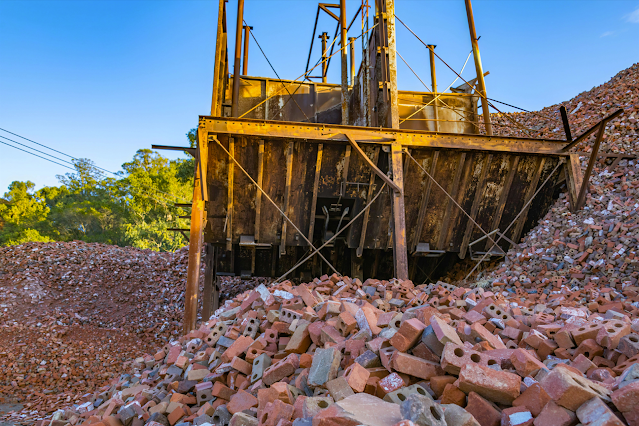Echoes of the Past: Reclaiming Bricks, Reclaiming Memories
The morning light crept through the leaves of the old oak tree, casting intricate shadows on the patch of earth where the contractor stood, surveying the monumental task ahead. The air was still cool, a gentle reminder that each dawn brings with it a fresh beginning. The contractor, Malcolm, had been entrusted with the delicate responsibility of expanding a quaint family home, a sanctuary that had stood the test of time.
Malcolm's thoughts drifted to his mentor, an old mason named Horace who had learned his craft from his father. Horace's hands were rough, like sandpaper, but they held the wisdom of generations. He often spoke of bricks as if they were living entities, capable of enduring beyond the lifetimes of the hands that shaped them. "Bricks," Horace used to say, "are the soul of a building. They carry the weight of the world quietly. If laid right, they stand forever." The words echoed in Malcolm's mind, tinged with the complex nostalgia of his youth, bringing with them a sense of purpose.
The brick wall that needed dismantling had stood like a sentry for decades, a silent witness to countless sunrises and rainy afternoons. Each brick he prepared to salvage bore the faint scars of its past—bits of mortar clinging stubbornly, resisting the call of the present. This was no mere demolition. It was an act of reverence, a meticulous unweaving of history for the sake of rebirth.
Time in the Age of Recycling had turned its gaze back to the old ways, urging humanity to take stock of what was left behind and see the potential that still lingered there. The notion of tossing perfectly good bricks into a landfill seemed a grievous insult to those who laid them, known and unknown. Efficiency in recycling isn't just about machinery and processes; it's about seeing the value lying quietly in what the world has deemed obsolete.
Malcolm took a deep breath and began his work, his movements careful and deliberate. His tools were simple—a bucket of water, brick hammers, and a solution of muriatic acid for the more obstinate bricks. The rhythm of his labor was almost meditative. Tap, tap. A gentle but firm tapping of each brick to persuade it free from its mortar cradle. His hands moved deftly, revealing the grace of long practice despite the laborious nature of the work.
Each brick he removed felt like a small victory, a fragment of the past saved from the abyss of waste. He imagined the wall's history—a child leaning against it, deep in thought, or an aged couple sitting beside it, their fingers intertwined. The bricks had been silent witnesses to these moments, absorbing the weight of human experience and emotion, leaving behind a residue of stories untold.
Hours passed, marked by the ever-shifting dance of sunlight and shadow, and the neat piles of reclaimed bricks grew. Malcolm's back ached from the repetitive motion, but he found solace in the physicality of his labor. It was as if each brick he reclaimed was a testament to perseverance, an echo of Horace's teachings and the ephemeral nature of time.
Occasionally, bricks would cling defiantly to their past, bound by mortar that was stubborn and unyielding. Malcolm submerged these in the bucket, watching as tiny bubbles rose to the surface like whispered secrets escaping aquatic captivity. When water alone wasn't enough, he turned to the mixture of muriatic acid and water, the acrid scent mingling with the earthiness of the day. He always handled it with care, aware of the latent danger, revering the alchemical process that transformed obstinacy into compliance.
As he scrubbed away the mortar with a wire brush, he often caught himself reflecting on the bricks' resilience, feeling a kinship with their quiet fortitude. Every brick cleaned and stacked was a new possibility, waiting to be part of another story—perhaps a comforting hearth, a quaint garden path, or yet another sentry wall standing firm against the elements.
Malcolm's mind wandered deeper into the reverie, contemplating the human condition. He thought about the ways people cling to their pasts, the mortar of memories holding them in place, safe and unyielding. Sometimes, like the bricks, people need a gentle tap, a soak in empathy, or even an abrasive scrub of truth to free them from the weight of their own histories. Reclaiming these bricks was like reclaiming parts of himself, discarding what no longer served him and saving what could still be beautiful.
The sun began its descent, casting long shadows and painting the sky with hues of orange and violet. Malcolm finished the day's work, stepping back to admire the stacks of reclaimed bricks, glowing warmly in the twilight. There was a poetic symmetry in their survival—a testament to endurance and the cyclical nature of life.
He gathered his tools, feeling a deep sense of fulfillment. The project had just begun, but already it resonated with a quiet significance. It wasn't just about reusing materials; it was about honoring the past and carrying its lessons forward. Malcolm knew these bricks, like himself, were now ready for a new chapter, and with each meticulous step, he was crafting a future rooted in respect and resilience.
Walking away, Malcolm felt the weight of history lifted slightly off his shoulders. He understood that his efforts were more than an act of recycling; they were a labor of love, a tribute to the enduring human spirit. The echoes of the past lingered in the cool evening air, but they were no longer haunting—they were hopeful, singing softly of possibilities yet to be realized.
Tags
Recycling
